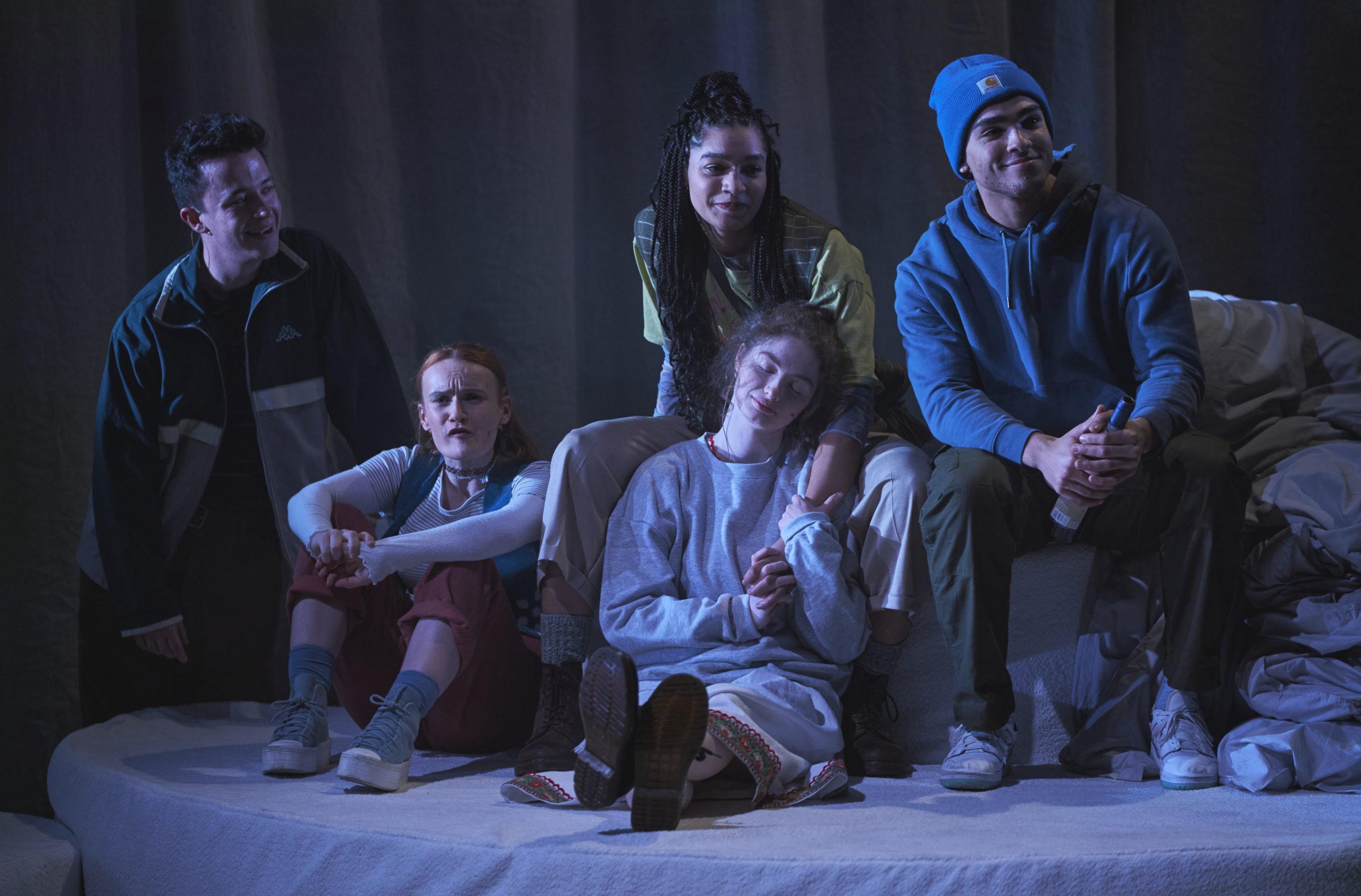Combining classical with modern, A Song For Ella Grey is both a mythological retelling of Orpheus and Eurydice and a contemporary coming of age story of young people living in the North-East.
The original myth, told many times, typically focuses on the tragic love between the two protagonists. However, Zoe Cooper’s interpretation of the play opens with the question: ‘Can you be both young and dead?’
The play goes on to show how young people interact with freedom, the idea of becoming and connection.
Set in Newcastle-Upon-Tyne, the show emphasises a sense of belonging that was fully captured in its source material by David Almond (Skellig).
When the performance began, the stage was stark white. Beds, steps, and seating created a dream-like space of innocence and comfort. They even evoked the rocky beaches of the North-East coastline of its setting. These props continued to be multi-functional throughout the first half.
The performance, directed by Esther Richardson, plays with transformation and queering.
Notably, the use of voice and song as a tool throughout significantly added to the folky feel of the performance.
Hypnotic songs were used to add a trance-like effect and spur on the story of the play, and the Geordie anthems sung by the cast resonated with the audience and seamlessly combined the past with the present.
When the second half began, the set transformed. All-black staging blocks replaced the white. The mood of the performance switched, and not necessarily for the better. Despite the speed of the action, vibrant lighting and atmospheric soundscaping, it felt confused and lost its pace.
The first and second halves ended up disjointed; like two different plays entirely. Whilst the ending resembled the mood of the first half, the rest of the act felt jumbled.
Despite this, A Song for Ella Grey was an imaginative and visually beautiful adaptation, a love letter to the North East and a deep dive into the impacts of loss and friendship.
A Song For Ella Grey is touring next at Theatre Peckham from the 27th of Feb to the 2nd of March, Hull Truck from the 5th to the 9th of March and Liverpool Playhouse from the 13th to the 16th of March.
